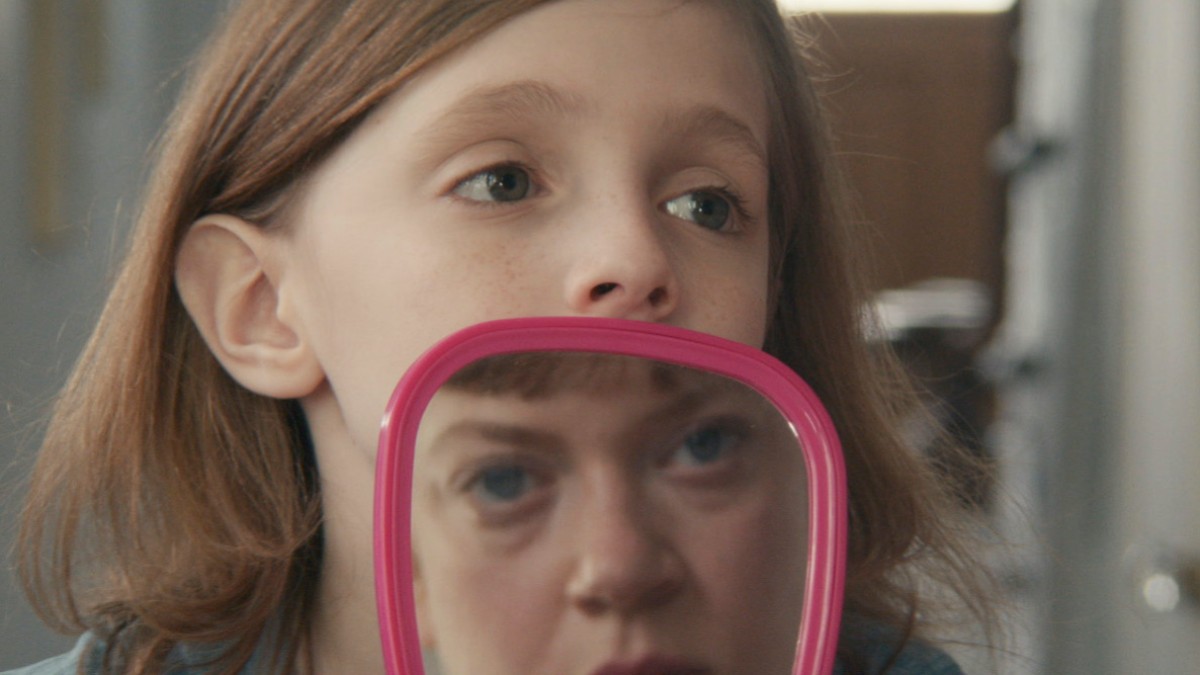
Joseph Sackett is originally from Portland, OR, but he has lived in New York for a little over 10 years. Joseph Sackett has been making short films since he was about 12 or so, but Homebody is his first feature film. Joseph also likes to play volleyball and do crossword puzzles.
indieactivity: How would you describe your work as a director?
Joseph Sackett (JS): I would say that I make dark comedies with a supernatural element. A friend of mine described my last short film, Dominant Species, as “funny and not funny”. I liked that description a lot, and I’d say that’s what I go for. I like a mix of light and shadow.
How did you get into directing?
Joseph Sackett (JS): I was always obsessed with movies as a kid. We have this home video of me pacing back and forth recounting the entire plot of The Little Mermaid in detail. I loved Tim Burton movies and I think watching his stuff was the first time I became aware of the role of the director. His fingerprint was so distinctive and you could see it across all of his movies. I loved that. We had neighbors who would rent a VHS camera once a year to film their Halloween party. I remember borrowing their camera before they had to return it to the rental shop and making short films with my friends.
I would edit by hooking up 2 VCRs and going tape-to-tape. It was extremely inefficient and it took forever and I loved it. But for a very long time, I thought of filmmaking as a hobby, not something that could be a real job. After college, I worked at a startup in San Francisco that let me make their training videos. That was a big deal for me, getting paid to do this thing that I’d always loved. It gave me the confidence to go back to film school and pursue filmmaking full-time.
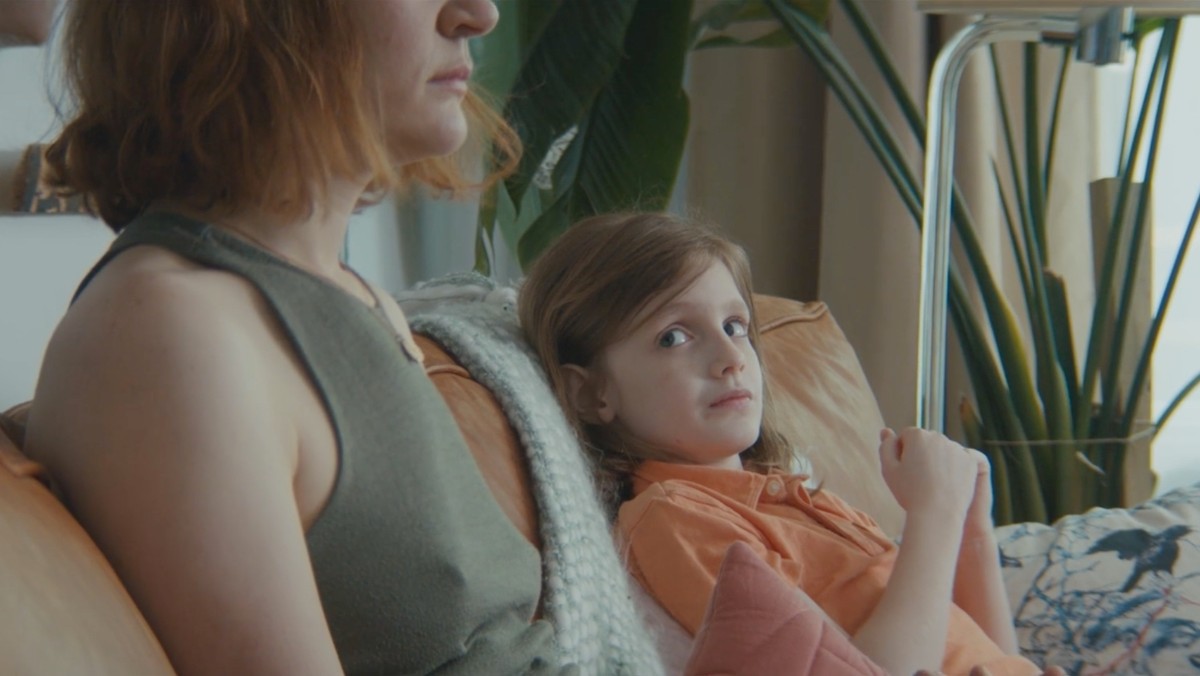
What uniqueness can queer directors bring to film/tv/cinema?
Joseph Sackett (JS): Well, I think everyone has a unique perspective to a certain extent. For me, queerness has made me hyper-aware of performance. Like the way, we all perform our self and our gender. As a kid, I got teased a lot for acting like a girl. So, from a young age, I was carefully calibrating how I walked, how I talked, everything about how I showed up in the world. For better or for worse, I think all of that practice gave me an eye for performance. Working with a good actor is one of my greatest joys. I have so much admiration for a fine-tuned performance.
What books do you read?
Joseph Sackett (JS): The last couple of books I’ve read that I’ve been obsessed with were Circe by Madeline Miller and Shuggie Bain by Douglas Stuart. I mostly read fiction, but my favorite non-fiction writer is Yuval Noah Harari. I don’t think I’ll ever dip my toe into his early medievalist academic writing, but basically everything he’s written since then I am all over. He also gives a good podcast. I’m a big fan.
Why would you choose an actor, writer, or producer? What do you look for?
Joseph Sackett (JS): Communication skills, positive attitude, good vibes. I mean, of course, you always want to work with people who are talented. But you end up spending so much time with your collaborators that it’s almost just as important that they be nice people who you want to hang out with.
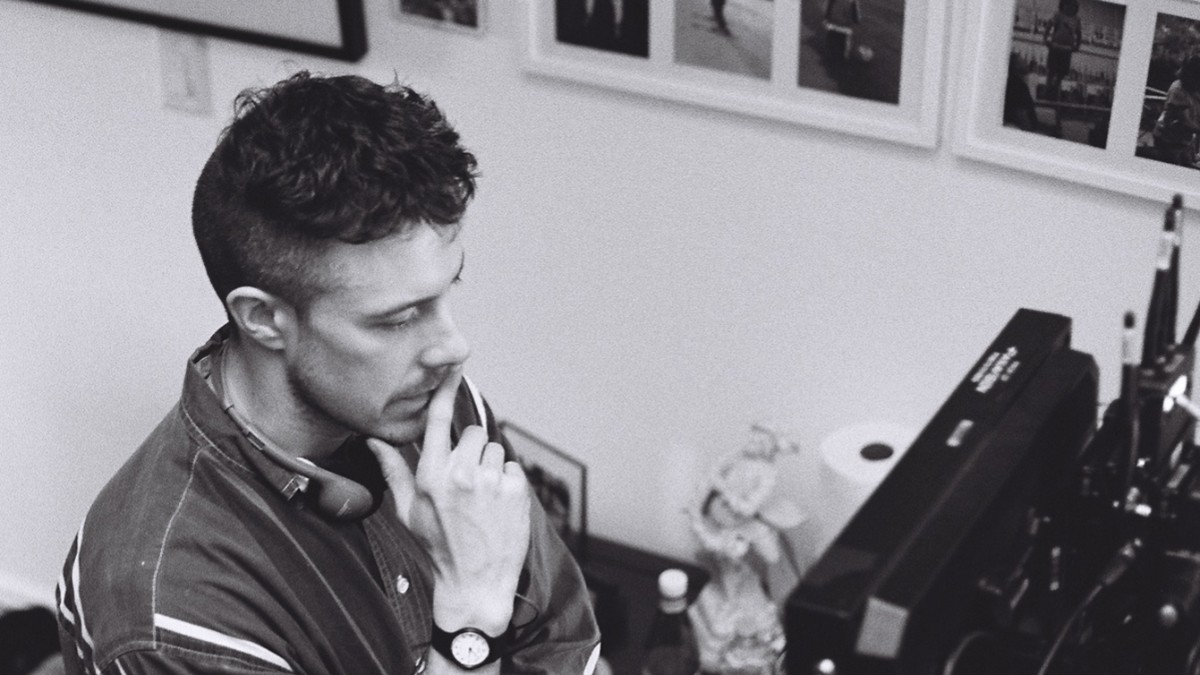
Tell us a little bit more about your latest work Homebody?
Joseph Sackett (JS): Homebody is about a little boy who gets to live as a woman for a day when he sends his spirit into his babysitter’s body. So it’s kind of a genderqueer Freaky Friday. I expanded it from a short film that I made a few years ago called I Was In Your Blood. That short is about a little boy who’s in love with his babysitter and then dreams that he goes into her body. At some point, the thought occurred to me to do the Being John Malkovich version of the story. So in Homebody, he doesn’t just dream about going into his babysitter’s body, he actually does it and spends a day as an adult woman.
What do you hope audiences take away from Homebody?
JS: I hope Homebody leaves people feeling uplifted. As a queer kid, I experienced a lot of shame around my gender expression. I didn’t want to shy away from those heavier emotions. But I also really wanted to make a movie where a young genderqueer person got to have some fun. I wanted to make something lighthearted and entertaining that would leave people feeling good. And I definitely wanted a happy ending.
What was the creative process of making Homebody like?
JS: I really couldn’t have asked for a better team on my first feature. It was a very collaborative project, and the set ran super smoothly. A lot of credit for that goes to our producer, Joy Jorgensen. She really fostered an environment of trust and respect on set. I think people do their best work when they feel safe and supported. I also had the good fortune of working with a number of collaborators who I’d worked with before. Yu-Hsuan Chen, our production designer, and Lillian Prentice, our costume designer, and I had all worked together on my last 3 short films. So we’ve had a lot of practice working together as a team, and I think the movie has a cohesive aesthetic because of that.
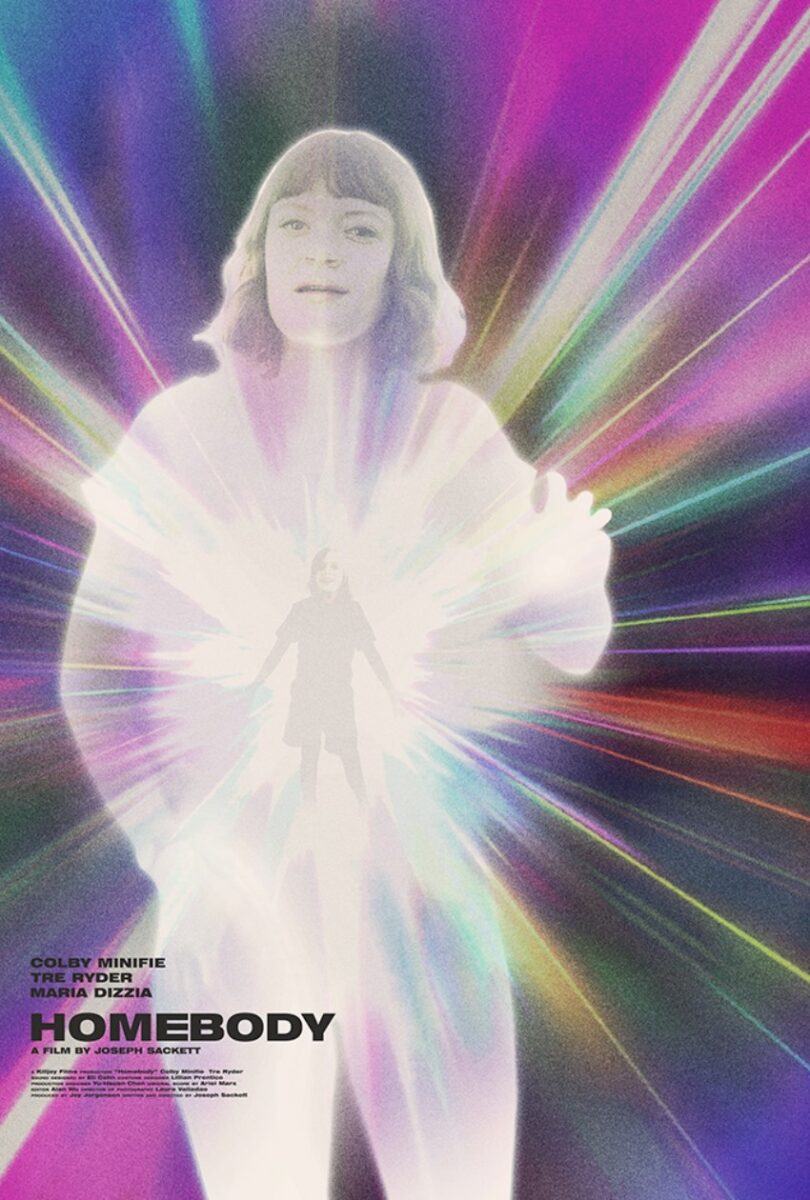
What advice do you have for directors to find projects?
JS: Well, at this point, I’ve only ever directed stuff that I’ve also written. So I guess my advice would be to write something you’re excited to make. I also think it can be dangerous to talk yourself out of writing by admitting the truth: that writing is super hard. So when I’m writing, I like to say to myself ‘This is easy and it’s fun’. And sometimes I even believe it!
How can filmmakers finance their projects?
JS: I can only speak from limited personal experience. Homebody got a ton of support from a big Kickstarter push that we did and we got a lot of institutional support from places like The Gotham, Rooftop Films, the NYU Production Lab, FixaFilm, and the US In Progress. So I guess my advice is to apply to as many labs and grants as possible. And don’t be shy about asking your friends for money. You never know who’s going to come through for you. I felt really lucky to have all these people support us, including some folks who I haven’t seen for over a decade.
What do you want from an actor during a production?
JS: I mean, every actor is different. And part of the fun for me is learning how we can work together to get to the best performance possible. Some actors always have a phenomenal first take. Some do better when a scene is improvised. Some do better when the pressure is on and some do better when it’s off. When I’m casting, I’m always looking for someone whose instincts I trust. Beyond that, I’m more focused on what they need from me to do their best.
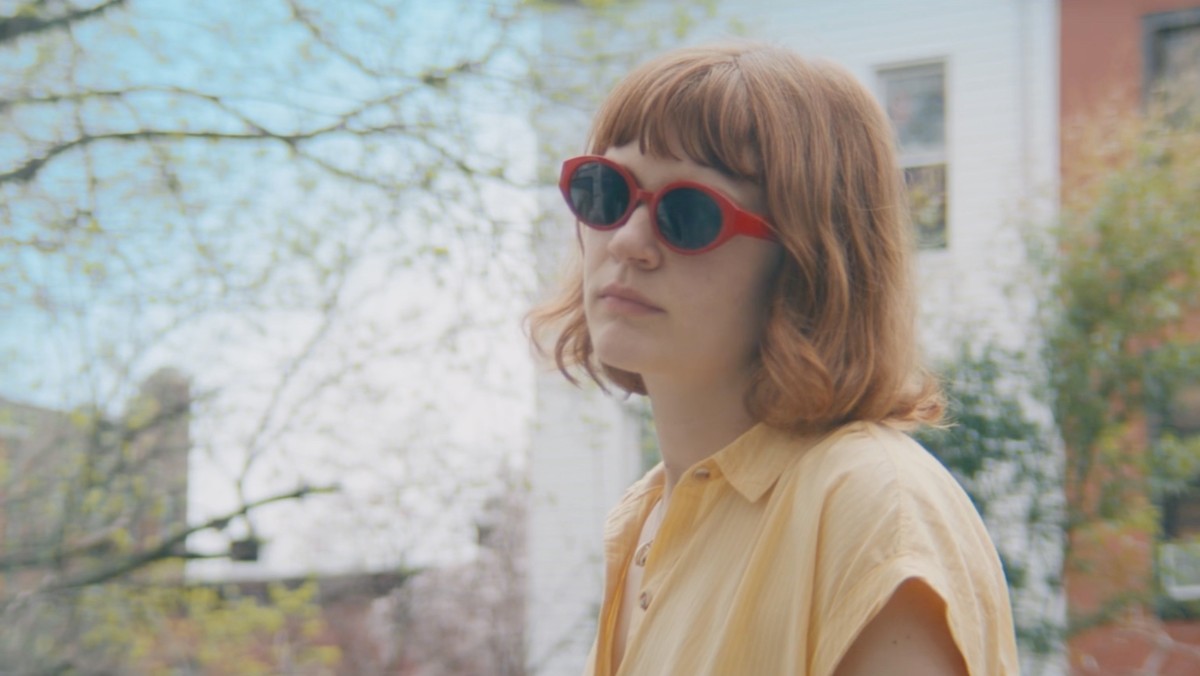
How do you prefer to work with a producer during a production?
JS: As is the case on the volleyball court, communication is everything. You have to be clear about who is handling what and where you need help. My producer, Joy Jorgensen, and I have the added benefit of having gone to film school together. So we’ve known each other for years and have been able to work together a lot. It definitely makes everything more fun when your producer is also a dear friend.
What advice do you have for queer directors and filmmakers looking to get into the film industry?
JS: As a young person, I always felt like my queerness was my greatest liability. It was the thing that I got teased for and that made me feel different from everyone else around me. But now I see queerness as my greatest asset. It informs how I see the world and gives me a lot of empathy for my characters and for people in general. Because we’re all trying to fit in in our own way. So I would say trust that you have something valuable to say and believe that you are strong enough to do whatever you want to do. Who knows, that strength might even come from something that you used to think was a weakness.
Who is your favorite director and why?
JS: This might be cheating, but I’m going to name 2 directors. It’s a tie between Pedro Almodóvar and David Lynch. But I love them for the same reasons. They both have unique aesthetics and worldviews and lean into them hard.
Briefly write about your career?
JS: I’ve been making short films for over 20 years since I was a kid, but I still feel like I’m at the beginning of my career. I’m hopeful that it will be a long one, but you never know what the future holds. So, you know, one day at a time. In terms of what’s next, we recently started early pre-production on my next movie. It’s a queer sci-fi rom-com called Cross Pollination. I have a couple of past short films up on my website!
Tell us what you think of the interview with Joseph Sackett. What do you think of it? What ideas did you get? Do you have any suggestions? Or did it help you? Let’s have your comments below and/or on Facebook or Instagram! Or join me on Twitter.
Richard Green Documentary, ‘I Know Catherine, The Log Lady’: Premiere in NYC, LA May 9th
Lynchian Doc I Know Catherine, The Log Lady Makes Hollywood Premiere 4/17, Rollout to Follow
In Camera by Naqqash Khlalid Launch on VOD April 29
Naqqash Khlalid’s Directs Nabhan Rizwan. In Camera stars an EE BAFTA Rising Star Award Nominee.
2025 Philip K. Dick Sci-Fi Film Festival Award Winners Announced
Vanessa Ly’s Memories of the Future Awarded Best PKD Feature
Dreaming of You by Jack McCafferty Debuts VOD & DVD for April Release
Freestyle Acquires “Dreaming of You” for April 15th Release
Hello Stranger by Paul Raschid set for London Games Festival & BIFFF
The film Is set for an April 10th Premiere at The Genesis Cinema in London (LGF) and BIFFF
Daydreamers Official Trailer by Timothy Linh Bui: Released by Dark Star Pictures
Daydreamers Vietnamese Vampire Thriller – May 2nd release









